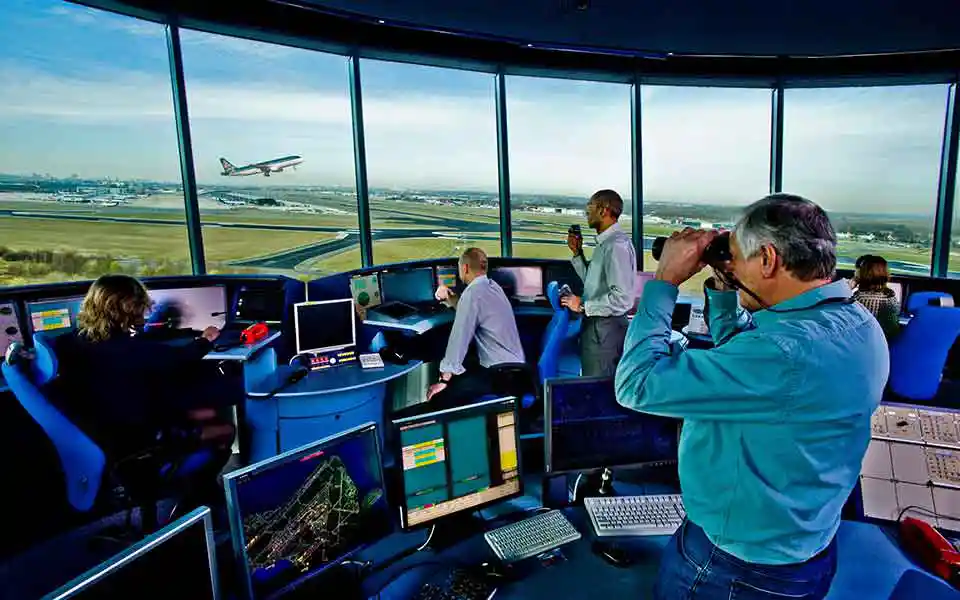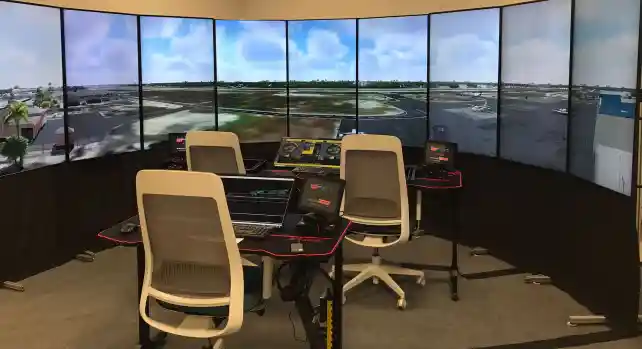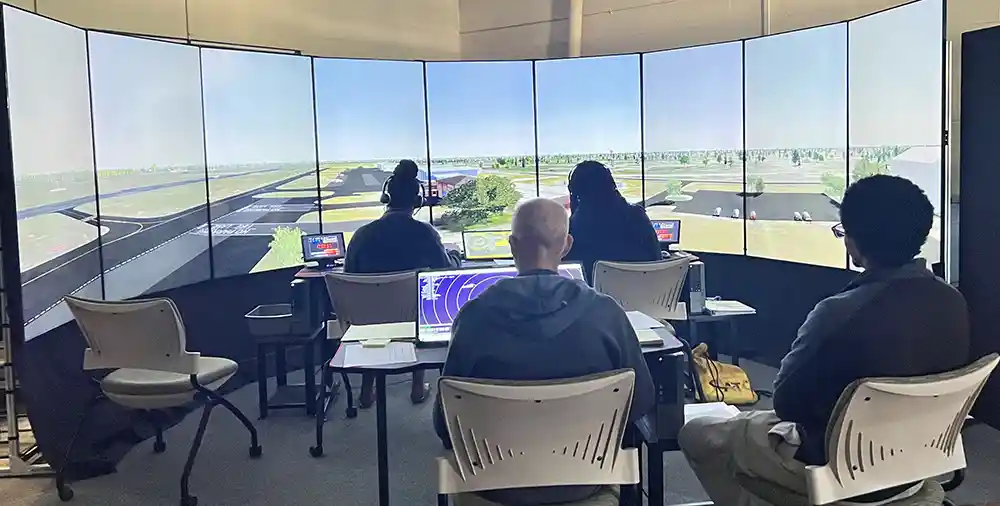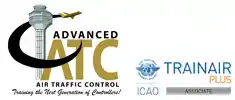
Navigating the Skies: The Thrilling Journey to a Career in Air Traffic Control
Imagine yourself behind the scenes, orchestrating the safe and efficient flow of airplanes as they traverse the skies. A career in air traffic control is not only demanding but also incredibly rewarding for those with a passion for aviation. For aspiring controllers and aviation enthusiasts, this path offers a unique opportunity to blend technical skills with critical decision-making. In this guide, we’ll explore the ins and outs of becoming an air traffic controller, from the roles they play to the training required, helping you determine if this high-flying career is for you.
The Importance of Air Traffic Controllers
Air traffic controllers are the unsung heroes of aviation, ensuring the safety of passengers and crew on every flight. Their primary responsibility is to manage the flow of air traffic in the nation’s airspace, guiding pilots through the complexities of modern aviation. By maintaining safe separation between aircraft, they help prevent accidents and minimize delays, even in challenging conditions like storms and fog. This vital role requires a keen eye for detail, quick thinking, and the ability to remain calm under pressure. With the increasing volume of air travel, the demand for skilled air traffic controllers continues to grow. Whether you’re coordinating takeoffs and landings at an airport or directing aircraft in busy airspaces, this career offers a dynamic and exciting work environment. Aspiring controllers can look forward to a fulfilling profession that plays a crucial role in keeping our skies safe.

A Day in the Life of an Air Traffic Controller
A typical day for an air traffic controller involves a series of high-stakes decisions and constant communication with pilots, ground crew, and fellow controllers. Controllers work in shifts around the clock to ensure uninterrupted coverage of the airspace. Each day presents new challenges, as controllers must adapt to changing weather conditions, unexpected emergencies, and fluctuating traffic patterns.
In the control tower, controllers use sophisticated radar systems and two-way radios to monitor aircraft movements. They provide pilots with vital information, such as weather updates, runway conditions, and traffic advisories. Controllers must also be prepared to handle emergencies, such as equipment malfunctions or medical incidents on board.
Despite the pressures, many controllers find their work incredibly rewarding. Knowing that their efforts contribute to the safe and efficient operation of the aviation industry is a source of pride for those in the field. For aspiring controllers, a career in air traffic control promises both challenge and fulfillment.
The Three Key Specialties in Air Traffic Control
Air traffic controllers can specialize in three main areas, each offering unique responsibilities and opportunities:

The Role of Technology in Air Traffic Control
Advancements in technology have revolutionized the field of air traffic control, providing controllers with powerful tools to enhance safety and efficiency. Modern radar systems allow controllers to monitor aircraft movements with pinpoint accuracy, while computer systems assist in managing complex traffic patterns.
In addition to radar, controllers use automated systems to track flight plans, predict potential conflicts, and analyze weather data. These technologies enable controllers to make informed decisions quickly, reducing the risk of human error and improving overall safety.
For aspiring controllers, a strong understanding of technology is essential. Familiarity with radar systems, communication equipment, and computer programs will be crucial in navigating the skies and ensuring the safe passage of aircraft.
Training and Education for Aspiring Controllers
Pursuing a career in air traffic control requires specialized training and education. Aspiring controllers must complete a combination of formal education, practical experience, and certification to qualify for the role. Here’s a look at the key steps involved in becoming an air traffic controller:
The Challenges and Rewards of a Career in Air Traffic Control
A career in air traffic control comes with its fair share of challenges, but it also offers numerous rewards. Controllers must be able to handle high-pressure situations, make quick decisions, and communicate effectively with pilots and colleagues. The job can be demanding, with long hours and the need to remain focused for extended periods.
Despite these challenges, many controllers find their work incredibly satisfying. The opportunity to play a vital role in the aviation industry, coupled with the sense of accomplishment that comes from ensuring the safety of countless passengers, makes this a fulfilling career choice. For those with a passion for aviation and a desire to make a difference, air traffic control offers a unique and rewarding path.
Opportunities for Advancement and Career Growth
Air traffic control is a dynamic field with numerous opportunities for advancement and career growth. Experienced controllers can move into supervisory roles, where they oversee teams of controllers and contribute to the development of air traffic management strategies. Additionally, some controllers choose to specialize in areas such as safety analysis, training, or technology development.
The skills acquired as an air traffic controller are highly transferable, opening doors to careers in aviation management, airport operations, and regulatory agencies. For ambitious individuals, the possibilities are endless, and the experience gained in air traffic control can serve as a stepping stone to a wide range of exciting opportunities.
Contributing to Global Aviation Safety
Air traffic controllers play a critical role in maintaining global aviation safety. Their efforts ensure that flights operate smoothly, efficiently, and safely, minimizing the risk of accidents and delays. By coordinating the movement of aircraft across vast distances, controllers help maintain the integrity of the aviation network and contribute to the overall safety of air travel.
For aspiring controllers, the opportunity to impact aviation safety on a global scale is both exciting and inspiring. By joining the ranks of skilled professionals dedicated to ensuring the safety of passengers and crew, you can make a meaningful contribution to the world of aviation.
Conclusion
A career in air traffic control is an exciting and rewarding path for those passionate about aviation. With opportunities for growth, the chance to impact global safety, and the satisfaction of playing a crucial role in the aviation industry, this career offers a unique blend of challenge and fulfillment.
Aspiring controllers can look forward to a dynamic work environment, continuous learning, and the chance to make a real difference in the world. If you’re ready to take flight in your career, air traffic control may be the perfect fit for you.

